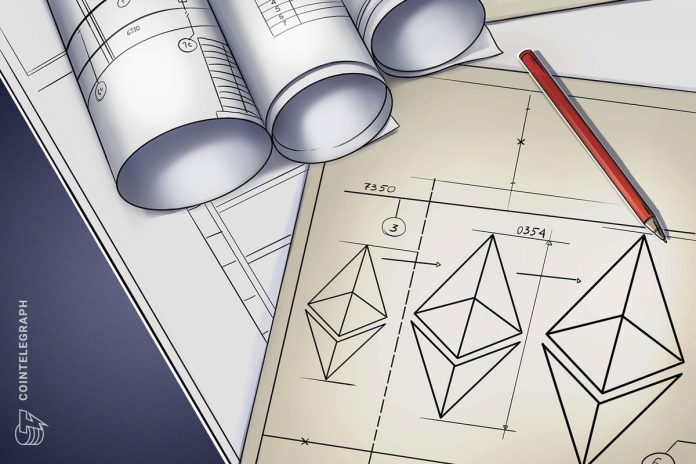Of the 44 lively Ethereum layer 2 blockchains in existence at this time, “just a few” will nonetheless be round in 5 years, says Kenny Li, the co-founder of Manta Pacific.
Based on knowledge from L2Beat, there are at the moment a complete of 44 lively Ethereum Layer2 networks, boasting a mixed complete worth locked (TVL) of $36.92 billion, with Arbitrum (ARB) standing in first place at $14.5 billion TVL.
Nevertheless, Li, the chief working officer and co-founder of Manta Pacific, claims that the long run is barely correctly paved for “modular” blockchains comparable to Manta, Celestia, and Cosmos.
Critics of this viewpoint, nevertheless, argue the time period is just a “advertising stunt” and the success of a community has nothing to do with its strategy to improvement and scalability.
‘Monolithic’ BTC and ETH killers
Chatting with Cointelegraph, Li argues the flood of recent layer 2s on the Ethereum community is charting the identical path as “forks” of the Bitcoin and Ethereum networks previously — none of which “survived.”
“With all the Bitcoin forks — Bitcoin Money and BSV — all of them took an current expertise and forked it,” Li defined.
“They stated: ‘You already know what. We’re going to make these minor adjustments to it. And by making these minor adjustments to it we’re going to create one thing that’s ‘higher than Bitcoin.’”
“Quick ahead to 2024, it’s simply Bitcoin. There’s no different Bitcoin fork neighborhood that has any comparable metrics, any comparable neighborhood that even comes near the unique Bitcoin.”
Li added that the identical factor performed out with Ethereum in 2016 when new networks comparable to EOS and NEO tried to place themselves as “Ethereum killers” by providing different EVM and VM environments that attempted to make slight tweaks to the pre-existing Ethereum ecosystem.
In Li’s view, the central problem with all the Bitcoin and Ethereum “forks” was that they had been all constructed “monolithically,” which means that they didn’t permit for the fast integration and adoption of recent expertise that confirmed up as time went on.
“All of them constructed monolithically and what occurred to them, proper? Quick ahead once more to 2024. Ethereum is the dominant participant.”
“Will we see this many L2s in 5 years or so? I don’t suppose so. Just a few will survive.”
Modular blockchains are networks that export their main duties; execution, settlement, consensus, and knowledge availability to exterior blockchains, which proponents say provide better design flexibility.
In distinction, monolithic blockchains prioritize a single-system structure, which handles all duties inside a single layer of the community.
Some, nevertheless, don’t see any cause to debate “modular vs monolithic” in any respect.
Possibly it’s all a ‘advertising stunt’
Austin Federa, the top of technique on the Solana Basis, described the comparatively new debate across the two phrases as a “advertising stunt” launched by Celestia.
Whereas many perceive Ethereum’s extra “modular” structure — counting on Layer 2s to finish particular duties — as standing in direct distinction to the “monolithic” nature of different higher-throughput networks comparable to Solana or Avalanche, Federa disagrees with using the time period fully.
“We have now to keep in mind that the modular versus monolithic debate is all a advertising stunt,” stated Federa. “Celestia created this distinction between modular and monolithic. It’s not a pure distinction and there’s nothing natural about it.”
Li claims that Manta — launched on Jan. 18 — might be described because the “first and largest” modular layer-2 community on Ethereum, because it makes use of Optimism’s OP stack and makes use of Celestia for knowledge availability (although Ethereum co-founder Vitalik Buterin would say that makes it a “validium” and never a real L2).
On the time of publication, Manta is the fourth largest layer 2 community when it comes to TVL, solely just lately overtaken by the brand new layer 2 Blast, which launched its mainnet on March 1.

“We do not construct in a monolithic manner. We’ve not constructed something when it comes to core structure simply by ourselves,” Li defined.
Associated: Bitcoin layer 2s amongst catalysts of this bull cycle, Bitcoin OG says
“We’re taking a really modular strategy which implies that we’re capable of primarily plug and play totally different applied sciences which can be out there at totally different instances so we will proceed to adapt to altering calls for,” Li added.
Federa, nevertheless, argues that there’s no must make a distinction between the 2 approaches.
“The reality is, there isn’t a such factor as a modular system, and there is no such factor as a monolithic system.”
Federa defined {that a} monolithic community is just an “built-in” blockchain the place duties are dealt with in a single layer, whereas “modular” — or “fragmented” networks — full the identical capabilities throughout a number of layers and don’t really contribute significantly to the success or outcomes of a given community.
“It is like how the phrases ‘pro-life’ and ‘pro-choice’ are, are two constructive spins on one thing, proper? Like nobody is definitely anti-life or anti-choice, proper? That is all simply advertising terminology to place ahead a sure narrative that folks need to discuss.”
“I believe that organising these items as being at odds with each other is just not a very helpful or correct manner to consider these programs. They’re simply totally different software program structure selections that aren’t really that totally different on the finish of the day,” Federa stated.
Web3 Gamer: Sweatcoin says shaking is faking, MotoDEX overview, Gods Unchained 2024

